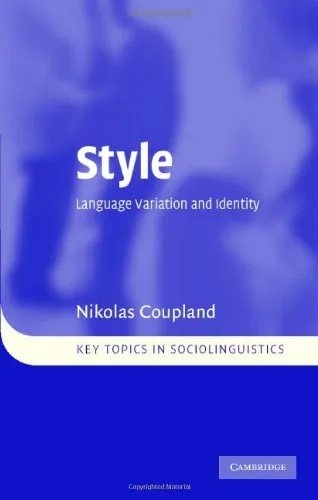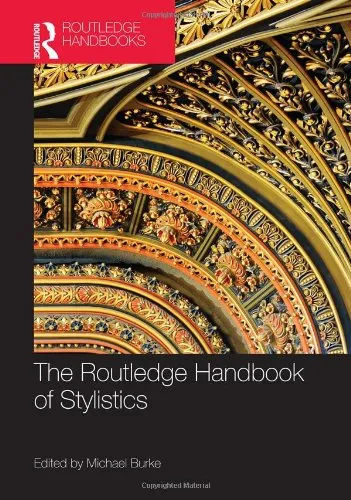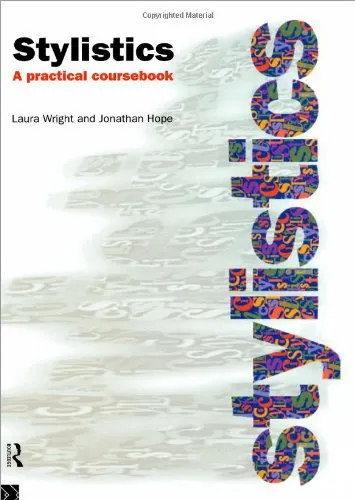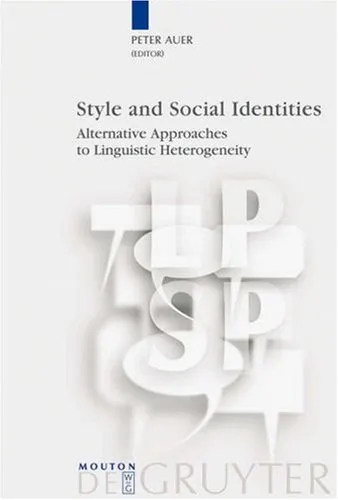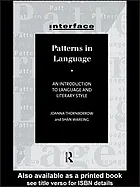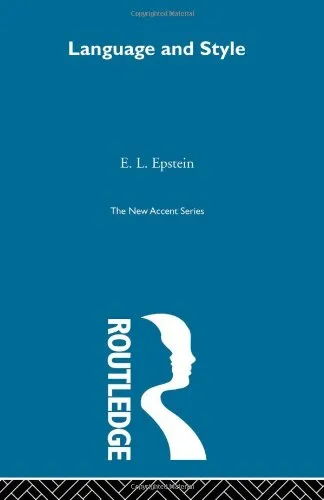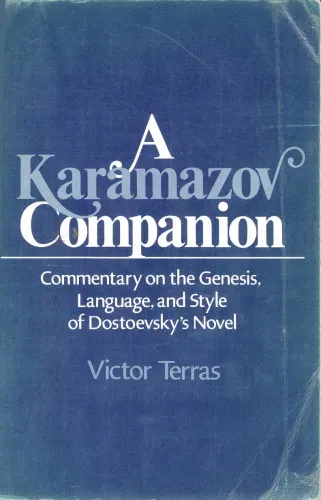Style: Language Variation and Identity (Key Topics in Sociolinguistics)
4.6
Reviews from our users

You Can Ask your questions from this book's AI after Login
Each download or ask from book AI costs 2 points. To earn more free points, please visit the Points Guide Page and complete some valuable actions.Related Refrences:
Analytical Summary
The book Style: Language Variation and Identity (Key Topics in Sociolinguistics) is a penetrating exploration of how language functions not only as a communicative instrument but also as a profound marker of identity, culture, and social positioning. Written with academic precision and accessible depth, it bridges theoretical frameworks with empirical case studies to unpack the ways individuals and groups use stylistic variation to project, negotiate, and sometimes resist identities.
At the heart of the text lies a nuanced interrogation of “style” as a sociolinguistic construct — connecting phonological, syntactic, and pragmatic variation to broader questions of social meaning. It situates style not as a static repertoire but as a dynamic resource mobilized for strategic purposes in interaction. This makes the volume a vital reference point for scholars examining linguistic variation in natural contexts.
Drawing on established sociolinguistic traditions and contemporary identity theory, the book frames style as both an observable set of linguistic features and a mechanism of social engagement. It provides analytical tools to trace how speakers shift registers, adopt or abandon local speech norms, and signal affiliation or disaffiliation with communities. Readers are guided through empirical examples that illustrate the interplay between individual choice and structural constraints.
Information about specific publication year or awards is unavailable, due to no reliable public source providing confirmation. Nevertheless, the work’s academic resonance within sociolinguistics is widely acknowledged, especially among those interested in the intersections of language variation and identity construction.
Key Takeaways
This book equips its audience with a robust conceptual framework for understanding sociolinguistic style and its centrality to identity narratives and social dynamics.
You will leave with an enhanced ability to analyze linguistic variation as an indicator of social processes, bridging micro-level speech events with macro-level cultural patterns.
The text clarifies the theoretical evolution of “style” within sociolinguistics, integrating perspectives from variationist research, discourse analysis, and identity theory.
Readers gain appreciation for the adaptability of style across contexts — whether in local dialect performance, professional communication, or globalized exchanges.
A deeper grasp of how deliberate or subconscious stylistic shifts function as tools for inclusion, exclusion, or solidarity within communities.
Memorable Quotes
Style is never neutral; it is a choice that reflects and shapes identity.Unknown
Language variation is a living record of social belonging and differentiation.Unknown
To study style is to study the artistry of interaction.Unknown
Why This Book Matters
For academics, language professionals, and socially-minded readers, Style: Language Variation and Identity (Key Topics in Sociolinguistics) offers a rigorously argued yet engagingly presented account of why style is a cornerstone of sociolinguistic inquiry.
In professional spheres, understanding sociolinguistic style enables better navigation of cross-cultural interactions, enhancing clarity and rapport. In research, it broadens interpretive lenses, allowing for richer conclusions about language’s role in society.
The book underscores the inextricable link between linguistic choices and the lived realities of identity, making it relevant not only to linguists but also to anthropologists, communication specialists, and educators committed to inclusive language practices.
Inspiring Conclusion
In immersing yourself in Style: Language Variation and Identity (Key Topics in Sociolinguistics), you engage with a text that challenges you to see language as both a scientific subject and an art of human connection.
The work’s authoritative synthesis of theory and evidence not only enriches academic discourse but also invites an ongoing conversation about how style influences identity at every sociolinguistic level. Whether you are a seasoned researcher, a professional communicator, or an inquisitive learner, this book offers pathways to understand—and thoughtfully apply—the insights of style in your own field.
Take the next step: read, share, and discuss the themes within this book with peers and colleagues, expanding the reach and depth of the sociolinguistic inquiry it so compellingly advances.
Free Direct Download
You Can Download this book after Login
Accessing books through legal platforms and public libraries not only supports the rights of authors and publishers but also contributes to the sustainability of reading culture. Before downloading, please take a moment to consider these options.
Find this book on other platforms:
WorldCat helps you find books in libraries worldwide.
See ratings, reviews, and discussions on Goodreads.
Find and buy rare or used books on AbeBooks.
1364
بازدید4.6
امتیاز0
نظر98%
رضایتReviews:
4.6
Based on 0 users review
Questions & Answers
Ask questions about this book or help others by answering
No questions yet. Be the first to ask!
